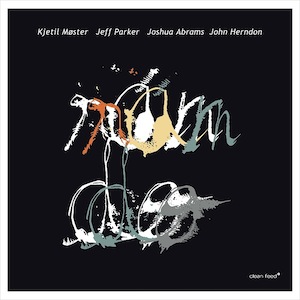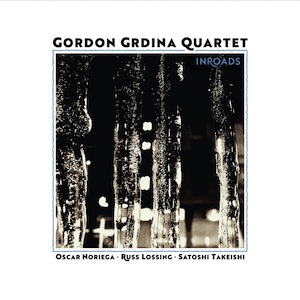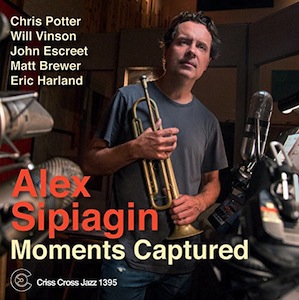Label: Sunnyside Records, 2018
Lineup – Wayne Escoffery: tenor and soprano saxophone; Dave Kikoski: piano; Ugonna Okegwo: bass; Ralph Peterson: drums.
The exceptional language and broad range of expressiveness of London-born, New York-based saxophonist Wayne Escoffery can be reported as sagacious and enthralling. He has been using his bright ideas, frequently colored by a blazing timbre, not only to pump up works from Mingus Orchestra and Mingus Big Band, Eric Reed, and Tom Harrell Quintet, but also to bring his own albums into life, usually delivered in quartet or quintet formats.
A former protégé of Jackie McLean, Escoffery gathers a deluxe quartet for his new album, Vortex, his third Sunnyside release. To give wings to a collection of nine marvelous compositions, the saxophonist summoned the creditable pianist Dave Kikoski, the reliable bassist Ugonna Okegwo (a bandmate in Harrell's quintet), and the vibrant drummer Ralph Peterson.
Vortex, shaped in an urgent, socio-political way that aims to racism, bigotry, and hate in the US, is a tour de force and the title track exemplifies this better than any other track. It’s an attractive post-bop discharge whose kicking-and-screaming locomotion is absolutely stunning. The bandleader shows his magnificent soloing capabilities, showing an affinity to explore deeply and widely with irrepressible inventiveness and bristling provocation. Kikoski and Peterson don’t squander their chances to be noticed when called to intervene.
“Judgement” is a short Coltrane-influenced prayer of gratitude, trust, and abandonment that functions as an introduction to “Acceptance”, a piece penned and propelled by Peterson, who buoys it up with a rhythm impregnated of complexity and sophistication. Kikoski is the first to shine by swirling through intertwining lines, while Escoffery, eloquent as ever, establishes his momentum through extravagant interval combinations and expeditious melodic lines crammed with hot rhythmic figures.
“February” cools down the impetus with its balladic intonation, yet, this slightly Latinized slow burner arrives exuberantly harmonized and reveals a conscious melodic orientation. Peterson’s exotic dry drumming extends to “The Devil’s Den”, where the bandleader brings into play a flickering, vertiginous soprano.
“Tears for Carolyn”, a thriving song with a catchy melody, takes us to familiar soundscapes in a sort of McCoy Tyner catches up with Michael Brecker, while the swift ternary “To the Ends of the Earth” expresses a myriad of edgy rhythmic accentuations, attaining the perfect balance between group interdependence and individual ego.
In a more traditional line, the gently swinging “In His Eyes” displays dreamy horn unisons with the addition of guest trumpeter Jeremy Pelt. Closing the record, “Baku” returns that post-bop vitality of Coltrane, Dexter, and Rollins.
Vortex, definitely a highlight in Escoffery’s career, starts the new year with lancinating energy and hope in a better world. It’s an engrossing exercise on tension and release, as well as on tightness and flexibility.
Grade A
Favorite Tracks:
01 - Vortex ► 03 - Acceptance ► 07 - To the Ends of the Earth








































